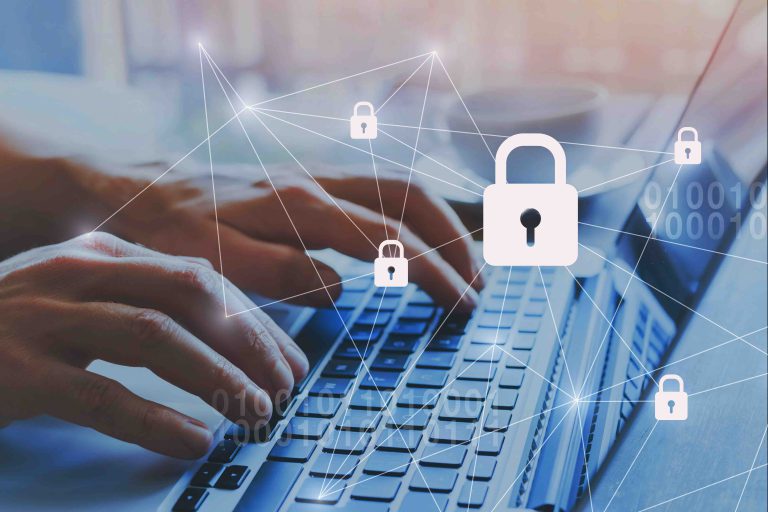Do you know about security translation?
August 03 , 2021Do you know about security translation?
by Target Language Translation Services
- August 03, 2021

With the recent Sony hack making the news, it’s difficult not to wonder about the safety and confidentiality of information we move across the web. Because of the fundamental role that data plays in supporting the ongoing digital transformation, entire systems could crumble in the event of security breaches. In fact, most of the CEOs who attended the World Economic Forum in 2019 insisted that data privacy and cybersecurity are currently more valuable to their organization’s success than ever. Data security is something that all businesses, in all industries, should have as a priority and the translation industry is no exception. That is, without data security, governments and businesses are known to collapse. Therefore, making sure this data is stored securely, and limiting the people who can access it, is significant in making sure a data security breach does not happen.
Potential data security risks with translation
For businesses who need translation, there is an even greater threat of a data security breach as data is being sent to a third party: the translation provider. The risks associated with outsourcing data to a third party are already big enough, but these risks become an even greater threat when businesses use poor quality translation providers or online machine translation tools.
1. The risk of applying online machine translation
Online machine translation tools can seem appealing to businesses who intend to minimize costs, but most businesses are unaware of the risks associated with utilizing these online tools. For instance, while it’s commonly acknowledged that Google Translate is a good (but not necessarily high quality) starting point, Google’s Terms of Service for this content may not be common knowledge, which are certainly not congruent with the type of language we see regularly in non-disclosure agreements. To reduce the risk of this happening to your business, the most effective thing to do would be to just not use machine translation for professional use in the first place. Whilst Google Translate can be a handy tool when travelling aboard, Google themselves even advise that you seek professional, human translators if you require translation for professional use.
2.Don't choose unsecure public Wi-Fi and cloud services
Just like online machine translation tools, free cloud services, and public Wi-Fi promise to lower your operational costs but end up introducing you to unnecessary risks: hackers can easily intercept your translation data while it’s in transit or stored on shared cloud servers. So the next time you want to share sensitive company information with your translators, don’t utilize Coffee Lab’s public Wi-Fi. If you must utilize a shared network to transfer confidential data, you can at least install a reputable VPN to hide your user activity.
3.How to select a translation provider?
There are several things that businesses should consider when choosing a translation provider; including the quality, cost, turnaround time and the reliability of that provider. Businesses need to know that they can trust the third party who they will be sending their documents to and be reassured that their data will be secure. Businesses who don’t do the right checks on their provider before they send them their work could be at risk of their confidential data being published online or being used against them. Both freelance translators and translation agencies need to be vetted properly. If a translation agency is being used, businesses also need to be aware that agency may outsource the documents to freelancers or other companies they work with, and if all of these parties are not security vetted too then your data is not fully secure.
4.Don’t totally rely on emails to transfer your confidential data
It’s very alarming to realize that emails, which are the most common means of communication for many professionals, are technically not secure. When you write an email, it is not delivered to its destination in a direct fashion. It first goes to a local DSL provider, then to the central server, then to another server that routes emails and again to a few more. Through all those passages, there is no guarantee that every server deleted your email after passing it on. Meanwhile, it is rather improbable that emails do reach their destination while under total encryption. This is because it is up to each relay to decide whether or not it will support the encryption. The email will need to be decrypted before delivery if either the sender or recipient has not enabled SSL. A potential solution to this might be encryption by PGP or "Pretty Good Privacy". Not the most convincing name to guarantee the security of your communications, but no encryption plan is foolproof.

Some advice
1. Gisting can be an vital step in discovery, but be careful in the way that this is approached. If you utilize machine translation regularly, it may be worth purchasing machine translation software that stays local and does not upload to a larger database.
2. Even better, think about hiring professional help for parsing through the initial set of documents. Legal staffing firms can offer bilingual legal review teams to help parse through the data without compromising its confidentiality.
3. Once the relevant documents are determined, hire a professional translator for a more accurate pass. Make sure to tell your translator what you are looking for.
4. Make sure the translator(s) or agency have proper security measures that cover both the employees and the physical infrastructure of their systems. The most reliable agencies will have been awarded security accreditations that demonstrate that they implement the best data security practices.
5.Utilize a secure submission method for sending the files – depending on your settings, simply emailing documents can often create weaknesses in the security of files.
This article is reprinted from Language Insight, Tarjama and ALTA Language.
If there is a copyright, please inform us in time, we will delete it right the first time.